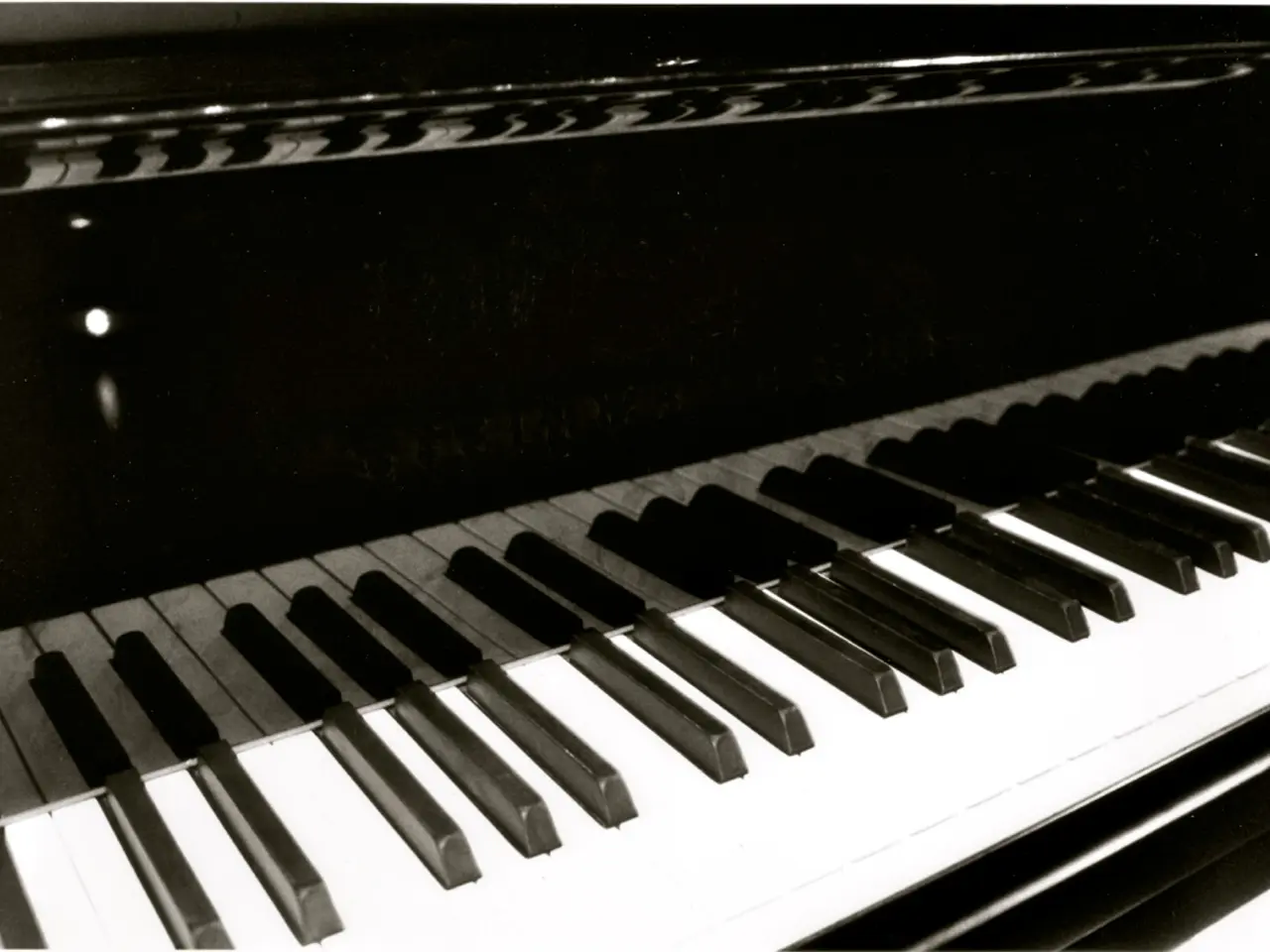Mastering Piano Performance Anxiety: Detailed Strategies for Success at Your Recital
=============================================================
Performing in a piano recital can be an exhilarating experience, but it can also trigger anxiety for many pianists. Here are some strategies that pianists use to manage performance anxiety, ranging from traditional methods to more unconventional practices.
Preparation is the cornerstone of managing piano performance anxiety. Long hours of practice make the piece feel like a natural extension of the performer, reducing the fear of failure and mistakes. Rehearsing in conditions similar to the recital environment can help build confidence and focus.
Beyond preparation, visualization plays a crucial role. Pianists often imagine themselves on stage, visualizing triumph in the face of mistakes and recovering with grace and confidence. Some pianists even engage in calming activities like yoga or meditation to focus their mind and tune their body for the performance.
Simulated performance practice, or playing in front of friends, family, or small supportive audiences, helps acclimate the body and mind to performing under stress conditions. Cognitive Behavioral Therapy (CBT) can also be beneficial, as it helps identify and challenge irrational fears, thereby reframing negative thoughts about performance and reducing anxiety.
Acceptance of anxiety is another strategy. Acknowledging that performance anxiety is natural and normal helps lessen its control and impact. Lifestyle management, including maintaining adequate sleep, a nutritious diet, and regular exercise, supports overall mental health and resilience to anxiety.
Under medical supervision, some musicians use beta blockers to reduce physical symptoms triggered by adrenaline, such as rapid heartbeat and shaking. Others employ a mental strategy of stepping aside to feel the keys and trust their preparation, promoting more fluid and relaxed playing rather than rigidity.
Techniques drawn from somatic therapy encourage allowing the body to feel the feelings tied to anxiety, which can release stuck emotional energy and reduce stress. Guided meditation or imagery can help pianists mentally rehearse performances, building neural pathways that improve confidence and reduce anticipatory anxiety.
Fear of judgment is a common anxiety for pianists, as they worry about living up to audience expectations and being harshly criticized. Some pianists wear a specific piece of clothing or accessory, like a "lucky scarf" or a "special concert shirt," as a way to reduce stress.
Certain pianists have a chosen pre-show meal, believing it brings good luck and calms their nerves, ranging from a specific type of herbal tea to a particular kind of fruit. Some musicians talk to their piano before the performance, treating it as a trusted ally rather than a source of anxiety.
Anxiety can be transformed into a driving force for rooted, compelling performances. Some pianists have uncommon rituals, like playing a particular scale or piece repeatedly, performing hand gymnastics, or even juggling tennis balls to loosen up their fingers and hands.
Fear of the unknown, such as uncertainties about audience reaction, technical issues, or timing fluctuations, can significantly amplify anxiety. A music performance contract can help prevent situations where a small mistake may lead to financial loss.
For professional pianists, fear of damaging their reputation is a concern. They worry that a single flawed performance may lead to losing future opportunities or falling out of favor in their professional circles.
WKMT, a leader in piano education since 2010, offers exceptional piano lessons in London in-studio and online worldwide. London Piano Studios and Online Piano Lessons are also available with WKMT. Every piano key, every sound wave, every heartbeat is an opportunity for the pianist to share their gift of music with the world.
- The composer might find meditation or yoga beneficial, as these calming activities can focus the mind and prepare the body for the performance, helping to manage anxiety.
- A health-and-wellness routine, including adequate sleep, a nutritious diet, and regular exercise, supports not only the physical health of the pianist but also their mental health and resilience to anxiety.
- In addition to traditional methods of managing piano performance anxiety, some pianists employ unconventional practices such as imagining themselves as a scientist, meticulously analyzing and understanding the performance as a complex experiment rather than solely an entertainment event, fostering confidence and reducing anxiety.




